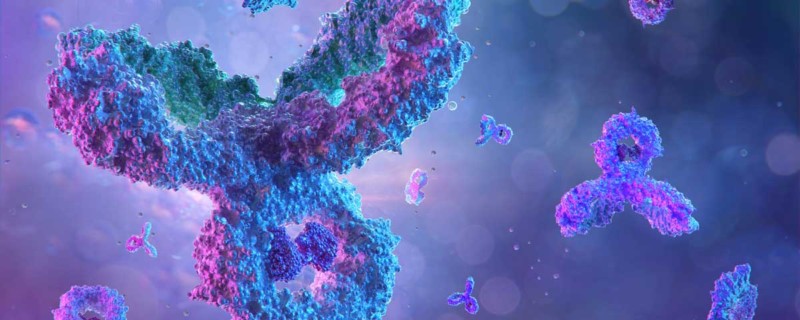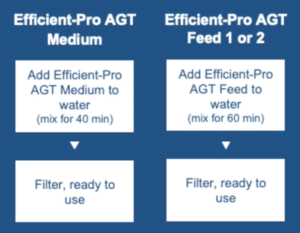
Development of a CHO Medium and Feed System Using Advanced Analytical Tools and Workflow Considerations
Contributor:
Company: Thermo Fisher Scientific, Inc.
Job Title: Upstream Process Development Scientist
In this mini-webinar and accompanying article, Yoana Hammer, Scientist, Thermo Fisher Scientific, discusses the process of developing a new chemically defined cell culture media to support expression of monoclonal antibodies and recombinant therapeutics in a CHO fed batch system.
Yohana began by discussing the popularity of using CHO cells as the primary cell line in bioproduction, accounting for up to 70% of recombinant proteins produced as biotherapeutics. With demand for therapeutics increasing, she explained that biopharmaceutical manufacturers need to maximize productivity and streamline CHO based manufacturing processes to reduce cost.
To maximize productivity and reduce development time and cost, CHO workflows require a high performing, chemically defined basal medium and feeds optimized for specific CHO cell lines. Thermo Fisher Scientific is committed to providing products and solutions to support these efforts including the development of the Efficient-Pro™ cell culture medium and Efficient-Pro™ Feed 1 and 2.
The Efficient-Pro Medium and Feed System
The Efficient-Pro™ medium and feeds are formulated with nutrients based on the cells nutritional requirements and optimized using the traditional and multiomics modeling approach to enhance protein expression. The Efficient-Pro medium and its complementary single power feeds are also available in a simple to use advanced granulation technology (AGT™) that performs comparable to the liquid format. It is designed for all CHO variants and can be paired with the corresponding single power feed designed to optimize performance of specific CHO cell lines. For example, Efficient-Pro™ Feed 1 is designed for CHO-K1 and CHO-K1 GS cell lines, while Efficient-Pro™ Feed 2 is optimized for CHO-S, DG-44, and CHOTZN™ lines.
These combinations of medium and feeds are formulated to support most formats and cell types resulting in titers above 4mg/mL and high specific productivity. Other key benefits include enhanced protein quality for more usable protein and higher protein expression.
Development of The Efficient-Pro Medium and Feed System
Spent Media Analysis
Next, Yohana discussed her department’s work in developing the Efficient-Pro medium and feed system. This involved spent media analysis collected at various time points during a 14-day bioreactor run. The multiomics analysis included metabolic pathway analysis using proteomics and metabolomics that screened over 800 molecules, 1,000 metabolites and over 7,000 proteins. The multiomics screen also identified cellular proteins and metabolites and how they fluctuated at different points during the bioreactor run. The protein and metabolic datasets were overlaid to identify the pathways that had the largest effect on protein titer. They also utilized standard DOE and spent media analysis to further optimize the formulations.
Next, the liquid medium was converted to a dry powder granulated format using their proprietary AGT technology, which enables rapid dissolution of the medium and is a better fit for large scale bioproduction applications. The AGT format allows for combination of all the medium feed components into a single unit dose.
Performance Testing
Yoana shared data demonstrating the effectiveness of the Efficient-Pro™ system. The performance of Efficient-Pro medium and feeds was evaluated in-house using CHO-K1, CHO S and DG-44 cells and involved comparing the Efficient-Pro system to another commercially available dry powder medium and feed system. Details of the experimental design are covered in the webinar. Results from the study showed that Efficient-Pro medium and feeds demonstrated compatible or improved titer and higher specific productivity for CHO K-1, CHO S and DG-44 cells compared to other medium and feeds.
Next, they evaluated the glycan profile of an antibody produced with the Efficient-Pro medium and feed system in CHO cells. Glycans were evaluated by collecting supernatant harvest at the end of the 14-day bioreactor run. The proteins were captured and purified using a Protein A spin captured centrifuge tube and samples were run on the genetic analyzer from Applied Biosystems. The glycan analysis indicates that the monoclonal antibody expressed in the Efficient-Pro medium with Efficient-Pro Feed 1 sample had a 20% increase in less differentiated glycans over the competitive process. For the monoclonal antibody expressed in the Efficient-Pro medium with Efficient-Pro Feed 2 sample, the increase in less differentiated glycans was 17% over the competitive process. In terms of charge variants, the Efficient-Pro system had larger neutral peak compared to the competitor product.
Performance was also tested using the Efficient-Pro™ feeds with ExpiCHO-S and DG-44 cell lines. ExpiCHO-S cells cultured with Efficient-Pro Feed 2 supplemented at 2.5% demonstrated increased protein production in Gibco™ Dynamis™ Medium. Production was maximized with the Efficient-Pro medium. CHO DG44 Cells cultured with 1.5% Efficient-Pro Feed 2 daily yielded the best performance and higher titers than the other competitor systems tested. The system is suitable for a range of different cell lines and is compatible with a range of older CHO media and feed products to complement existing customer processes. Full experiment details are available in the webinar.
Streamlined Workflow
Yoana described how the Efficient-Pro system enables a streamlined group workflow due to the fact that no adjustments are necessary when reconstituting the AGT medium to achieve the desired pH and osmolality. The simplified feeding process with a highly concentrated single powder feed reduces the chance of run failure and increases run to run consistency.
Easy Reconstitution
Some common systems use a 2 powder feed system that takes more time to prepare and are more challenging to use. The Efficient-Pro system is designed as a one power feed system, allowing the manufacturing process to be more efficient. The AGT format significantly lowers the number of steps and time required to reconstitute the medium and reduces the complexity.
Key Benefits of the Efficient-Pro System

Lastly, Yoana shared that at Thermo Fisher Scientific, they have highly qualified scientists, including a specialist in molecular biology, cell line development, and cell biology available to help customers with their projects.
To learn more, please watch the webinar and you can also request additional information